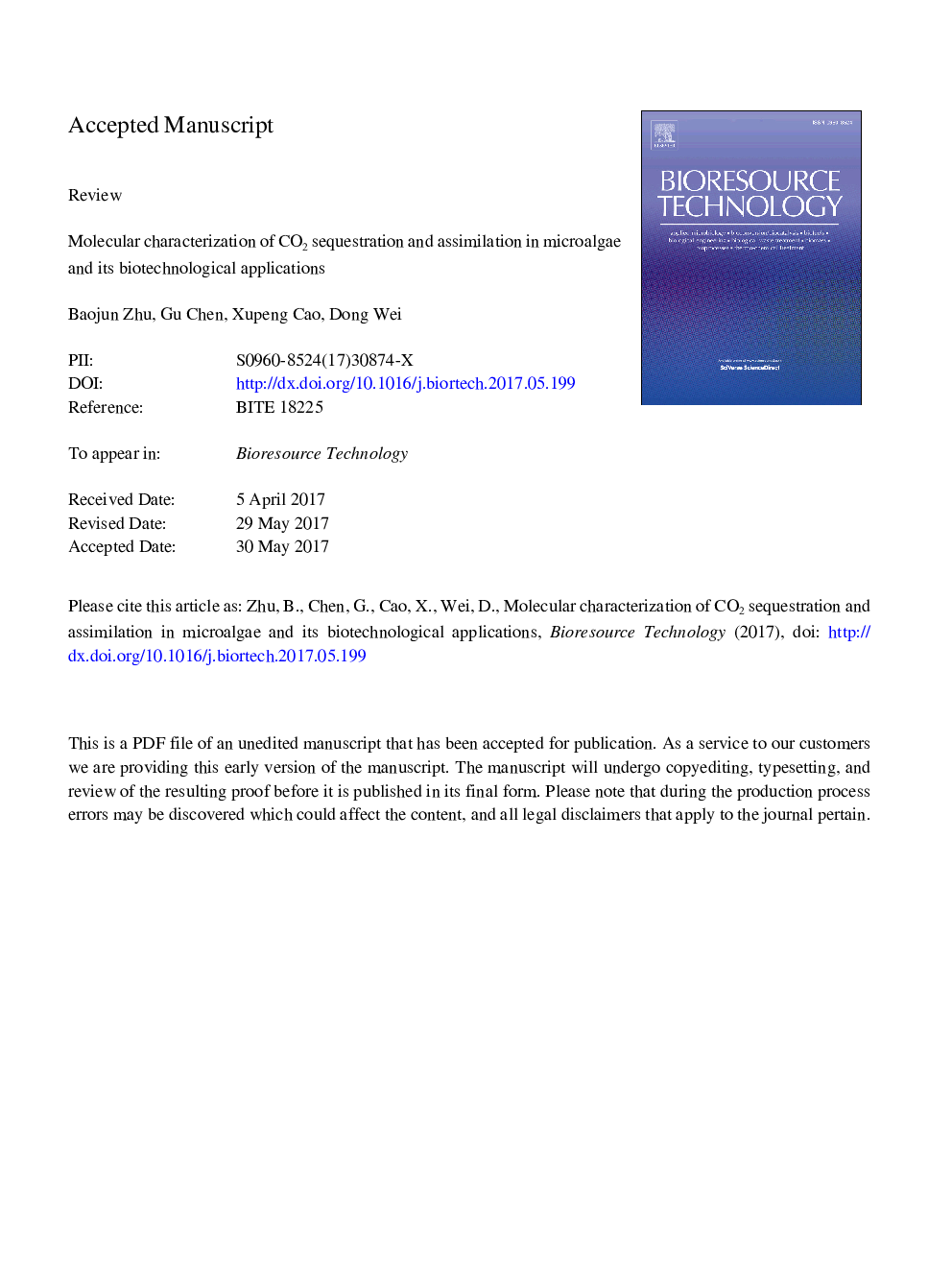| Article ID | Journal | Published Year | Pages | File Type |
|---|---|---|---|---|
| 4996959 | Bioresource Technology | 2017 | 34 Pages |
Abstract
Microalgae are renewable feedstock for sustainable biofuel production, cell factory for valuable chemicals and promising in alleviation of greenhouse gas CO2. However, the carbon assimilation capacity is still the bottleneck for higher productivity. Molecular characterization of CO2 sequestration and assimilation in microalgae has advanced in the past few years and are reviewed here. In some cyanobacteria, genes for 2-oxoglytarate dehydrogenase was replaced by four alternative mechanisms to fulfill TCA cycle. In green algae Coccomyxa subellipsoidea C-169, alternative carbon assimilation pathway was upregulated under high CO2 conditions. These advances thus provide new insights and new targets for accelerating CO2 sequestration rate and enhancing bioproduct synthesis in microalgae. When integrated with conventional parameter optimization, molecular approach for microalgae modification targeting at different levels is promising in generating value-added chemicals from green algae and cyanobacteria efficiently in the near future.
Keywords
FTRSF6Ferredoxin-thioredoxin reductaseCF4RuBP6PGDthioredoxinsTrxsKGDHFCRHPCAHLCIPerfluorochemicalsC2F6G6PDLong-chain acyl-CoA synthetaseFAEEsN2OCH4RU5PPFC6-phosphogluconate dehydrogenaseribulose-1,5-bisphosphateFatty Acid ethyl estersNitrous oxideCarbon dioxideribulose 1,5-bisphosphateribulose-5-phosphateribulose 5-phosphateMethaneHexafluoroethaneSulfur hexafluorideHydrofluorocarbonCO2Carbonic anhydrasecarboxysomeGlucose 6-phosphateglucose 6-phosphate dehydrogenase
Related Topics
Physical Sciences and Engineering
Chemical Engineering
Process Chemistry and Technology
Authors
Baojun Zhu, Gu Chen, Xupeng Cao, Dong Wei,
